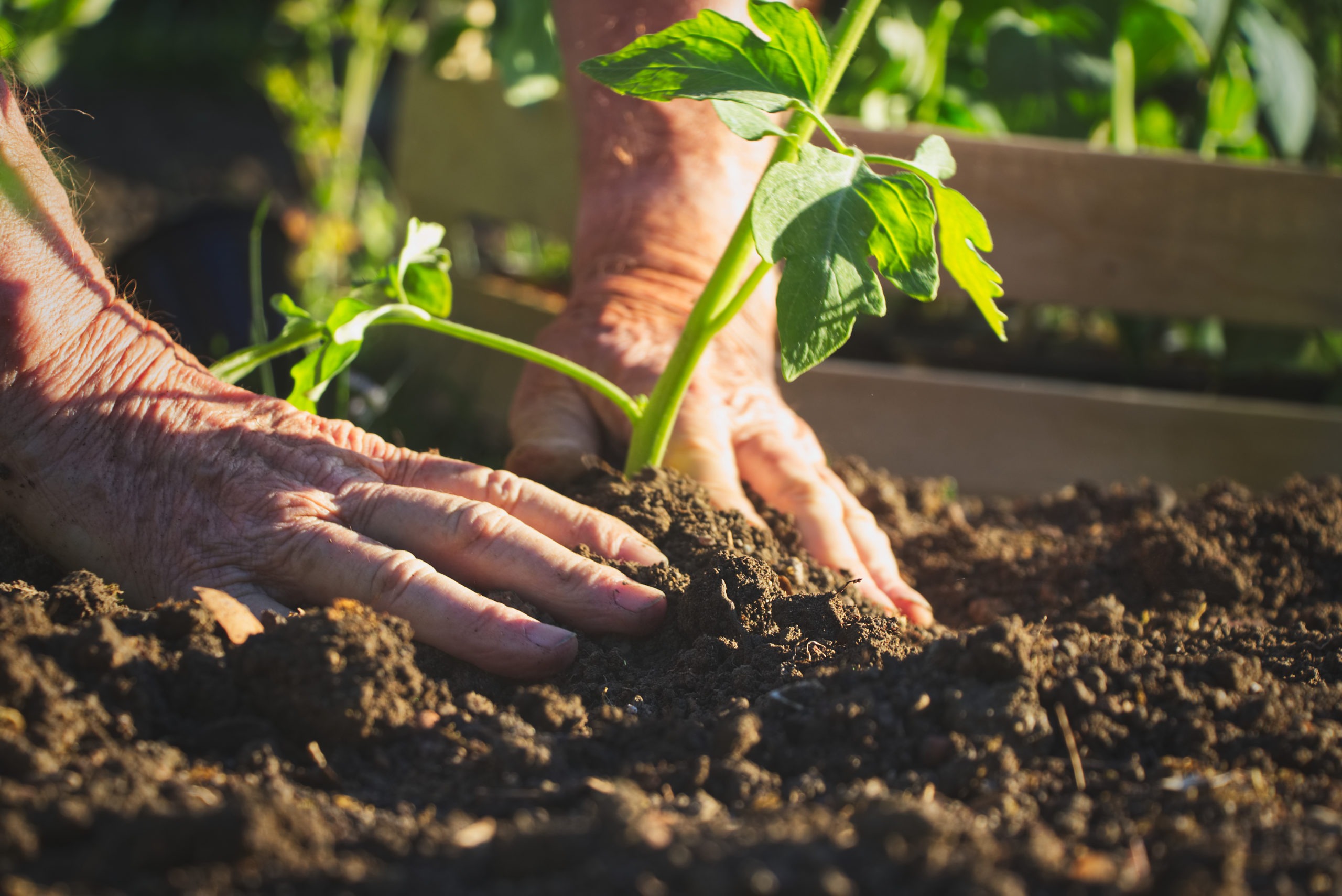When the world grows wearies, and society ceases to satisfy, there is always the Garden.
Minnie Aumônier
This quotation about gardening has lived under the glass on my desk for as long as I can remember. Decades before I became a gerontologist and learned that gardening is good for you—physically, mentally, and spiritually—I have shared these words with people. I knew this instinctively, as I always feel at peace after a morning or afternoon spent digging, cutting, weeding, and planting. Even cleaning up at the beginning of spring, and putting the garden to bed in the fall, leaves me deeply satisfied with the world.
Now, as the first little buds appear on the trees and the spring bulbs poke out their pointy heads, the garden calls me back to her.
Gardening: A Path to Physical and Mental Well-being
Mounting research reveals the solid health benefits gardening has on people of all ages, but especially on older adults.
Did you know, gardening ranks as the second most commonly reported leisure-time physical activity for us older adults behind walking? A Meta study (a study of many studies combined) done by Dr. Emily J. Nicklett at the University of Michigan looked at gardening for our physical health.
Despite the all-to-familiar lower back twinges many of us feel at the end of a long day outside, gardening is great exercise and leads to an improved diet and better nutritional choices. Studies involving home gardens, community gardens, and even school gardens, show that when we grow some of the vegetables that end up on our dinner table, it changes our attitude toward eating and urges us to make healthier lifestyle choices in other areas of our lives.
Dr. Nicklett also found gardening decreases diastolic blood pressure, reduces weight gain/body mass index and more than doubles the overall amount of physical activity compared to non-gardeners. Additionally, we gardeners who spend two hours a week or more playing in the dirt delay, and sometimes prevent, the onset of chronic conditions and maintain higher physical functioning than walkers.
The variety of physical activities involved in gardening—digging, raking, hauling bags of soil, reaching to trim—uses one’s whole body and tones every muscle. These all count among the best non-repetitive exercises. Dr. Elizabeth Blackburn has proven this type of exercise lengthens our telomeres, which keep our memory sharp, as I wrote about in a previous article.
Gardening is also excellent for our mental health, as well as our memory. The experience of being outside enjoying nature has shown to be so important for our mental health that in some parts of the country, progressive doctors are prescribing time in nature as part of a healing plan for their patients.
The Science Behind Gardening and Health
In the early 1980’s Dr. Roger Ulrich published his ground-breaking study which found that hospital patients recovering from surgery (gall bladder surgery in this case) whose rooms faced a garden had shorter hospital stays, a more positive outlook about their recovery, complained less, and took fewer meds than those patients who looked out to a simple brick wall.
I know it was devastating for me when a newer, taller house was built next door, and my view from my desk changed from lovely tree tops to the stark white side of a huge second story. In fact, I can barely sit at my desk during the day because of the loss of my view; I feel so mentally unsettled.
The Therapeutic Power of Being Outdoors
As I write this I am sitting in my early spring garden, hearing the birds chirping and the leaves gently rustling, and the words are flowing so easily to my fingers. Just as inspiration comes to me when I mindfully focus on the gardening task at hand, my thoughts become clearer and sharper when I just sit in nature.
In both cases, after spending time in the garden, my spirit feels replenished and a sense of all being right with the world envelops me. The beauty of nature around me, the soul-satisfying work of sweeping away the dead and connecting with the earth through my hands and body always makes me so appreciative of the time outside and grateful for the beauty of God’s creation.
Embracing Nature for Vibrant Aging
In the last two decades, scientists have come to understand the powerful healing energy of the earth, something farmers and gardeners have known since the beginning of time.
In 2012 the Journal of Environmental and Public Health published a revolutionary article declaring the positive health benefits of what is now known as earthing, or grounding, which is walking barefoot outside, sitting, or even sleeping on the ground. The researchers found Earth’s electrons brought about significant and multiple positive physiological changes to our body including reducing pain, and creating better sleep. They also noted a marked downshift in the activity of our nervous system prompting our bodies to deeply relax, and to produce blood-thinning effects, as well.
Now that the days are getting longer and the temperatures are rising, grab a sweater and a blanket, or even better, a trowel and a flat of geraniums, and spend some time with Mother Nature—my prescription today for aging more vibrantly.
Until next time…Be Vibrant!
Share Your Thoughts…
Do you love gardening? Do you feel that it benefits your health? Share your thoughts below in the comments area—together we can all benefit from your knowledge!

L.J. Rohan is a Gerontologist (University of Southern California’s Davis School of Gerontology), Certified Aging in Place Specialist (CAPS), and Vibrant Aging™ Coach. L.J. is dedicated to redefining the aging process. With a focus on holistic well-being, she combines scientific research and practical insights to guide women age 55+ towards a vibrant, fulfilling life. Her work has been featured in numerous publications and she frequently speaks at institutions such as Yale University and Southern Methodis University. Be Vibrant!

